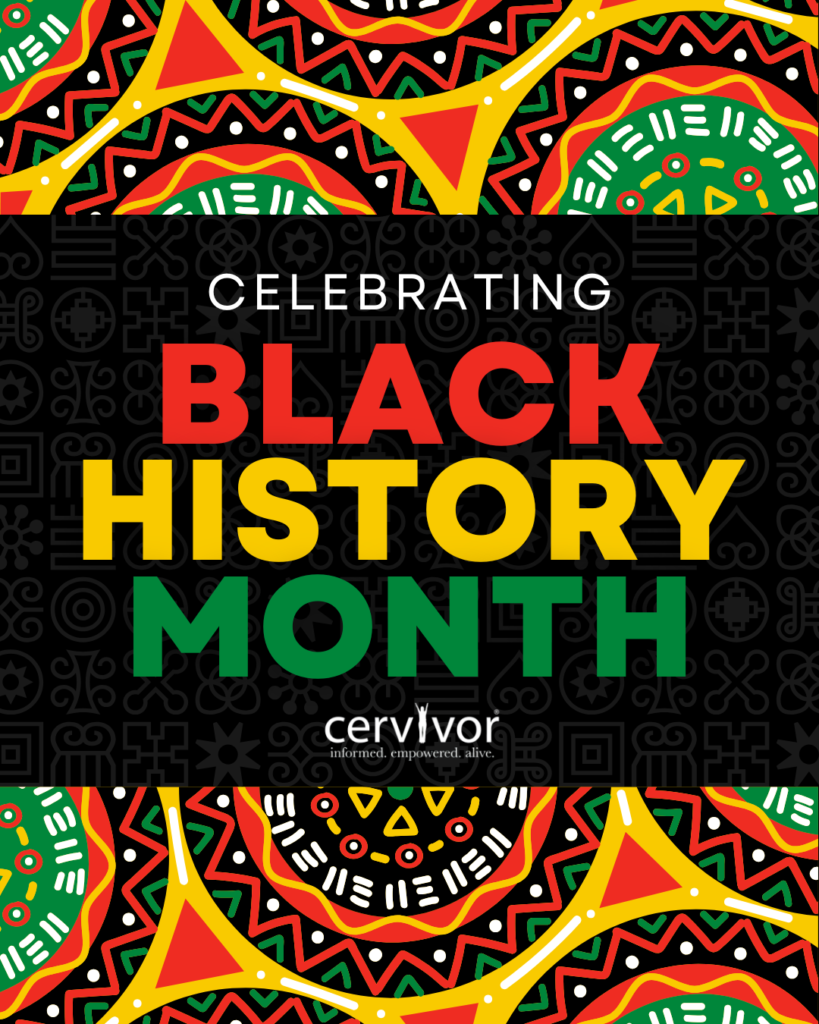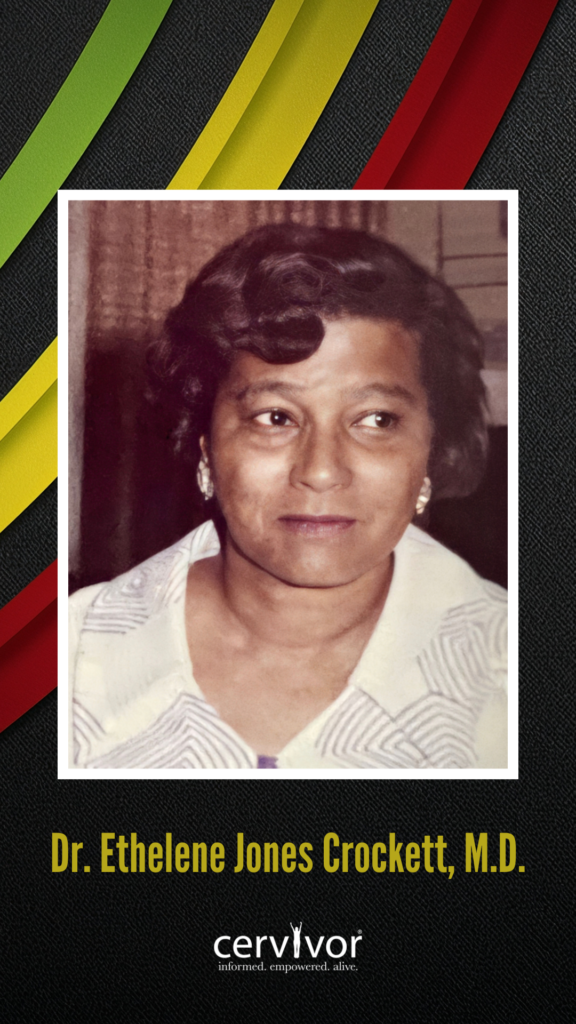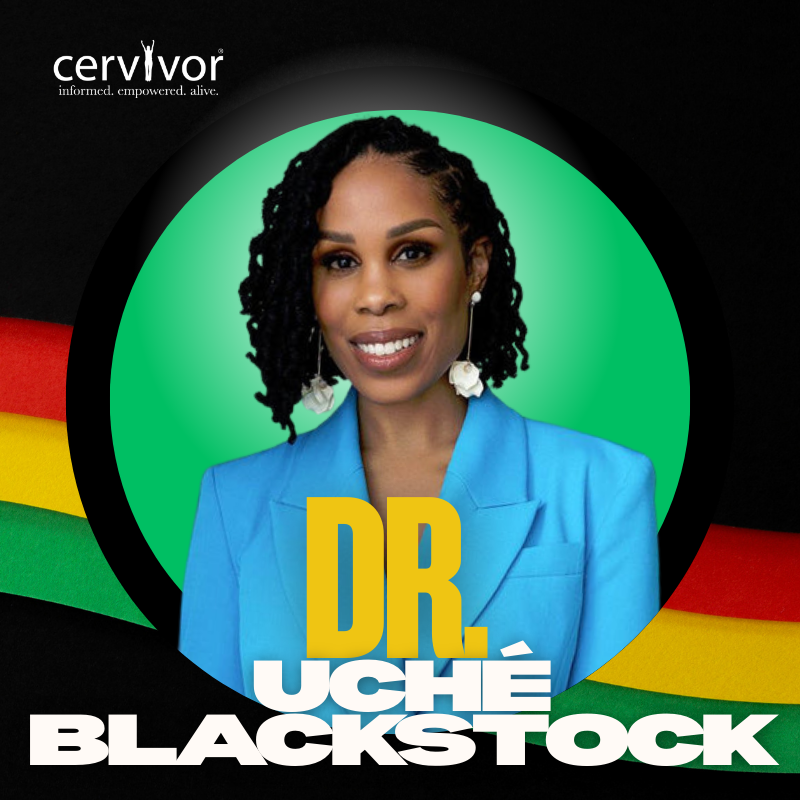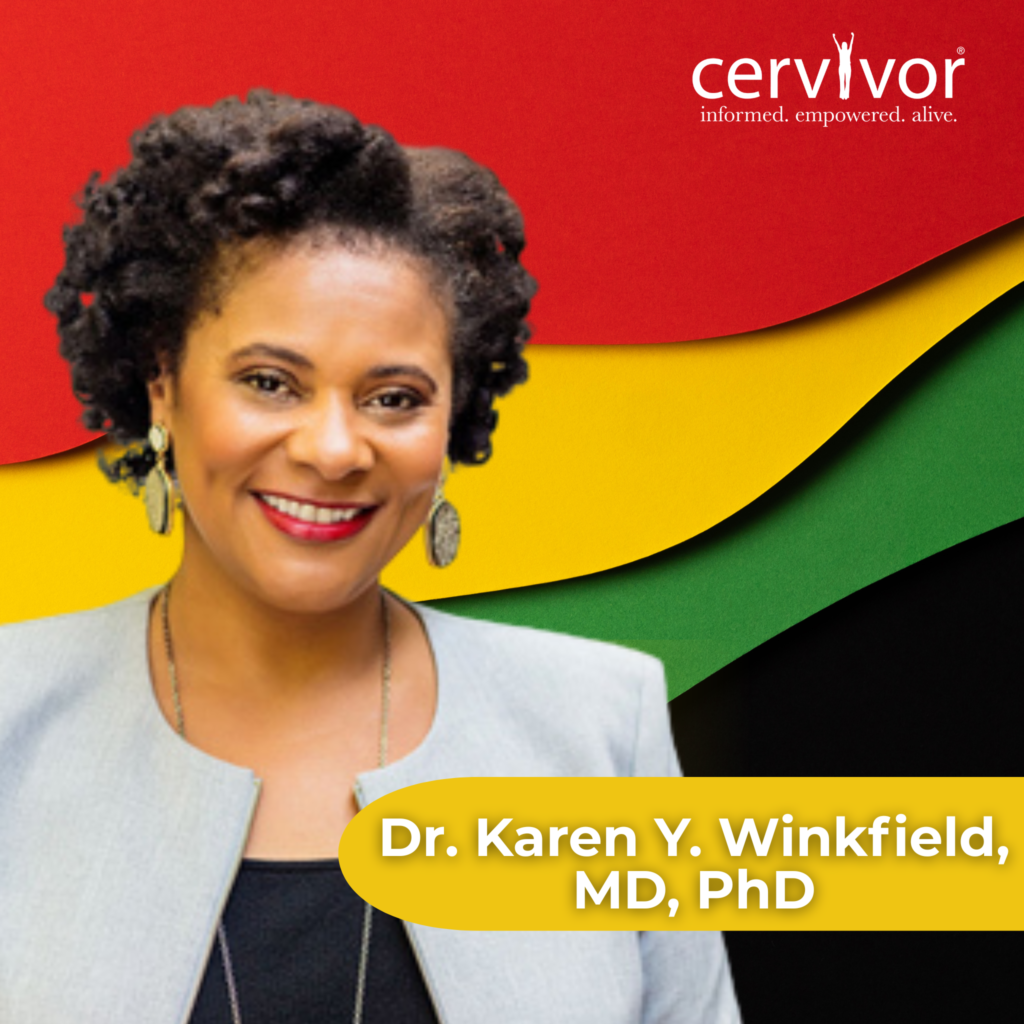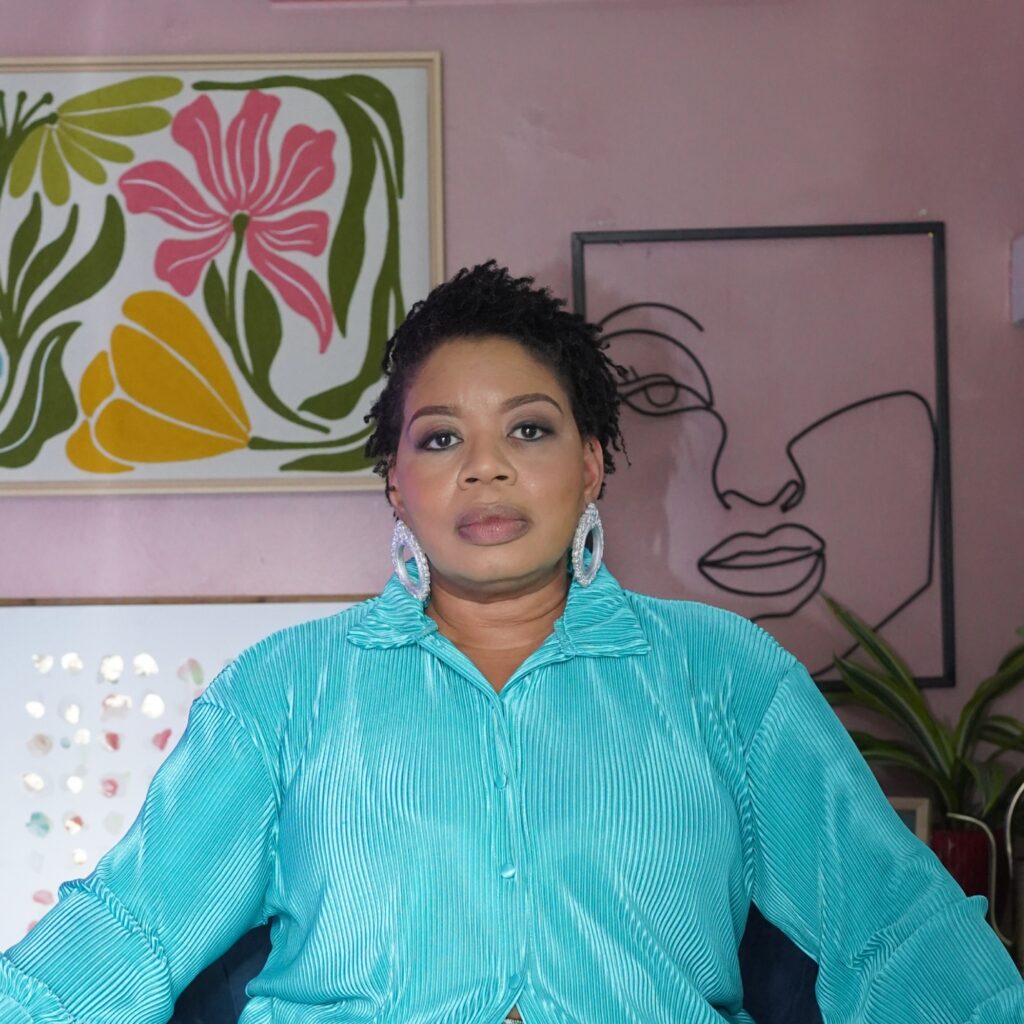By Kyle Minnis, Cervivor Communications Assistant
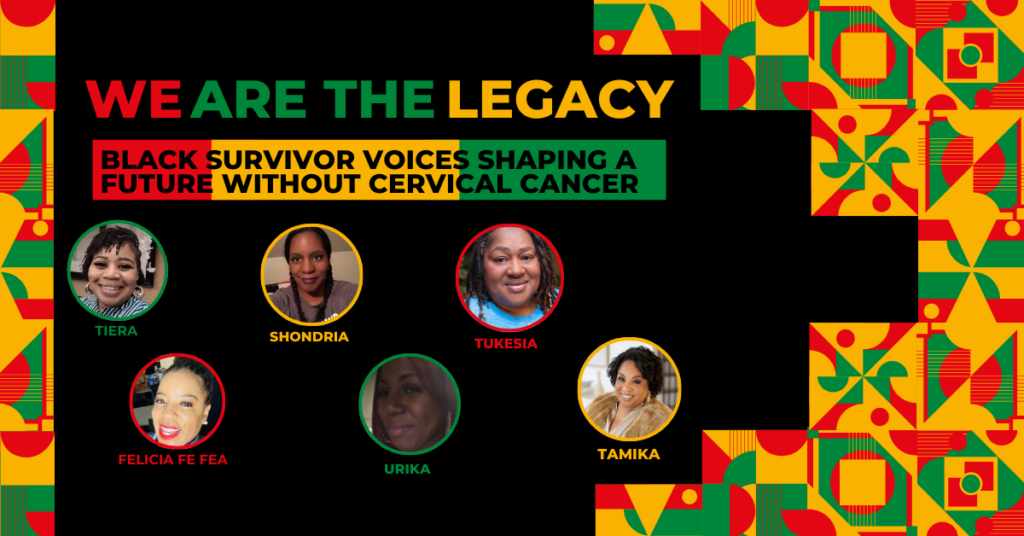
When we talk about Black History Month, we often focus on the names everyone knows: movement builders, artists, scientists, and changemakers whose impact is still felt today. In cervical cancer, there is another history — one often unnamed: a history of medical mistrust that continues to shape what Black individuals with a cervix experience in exam rooms and oncology wards.
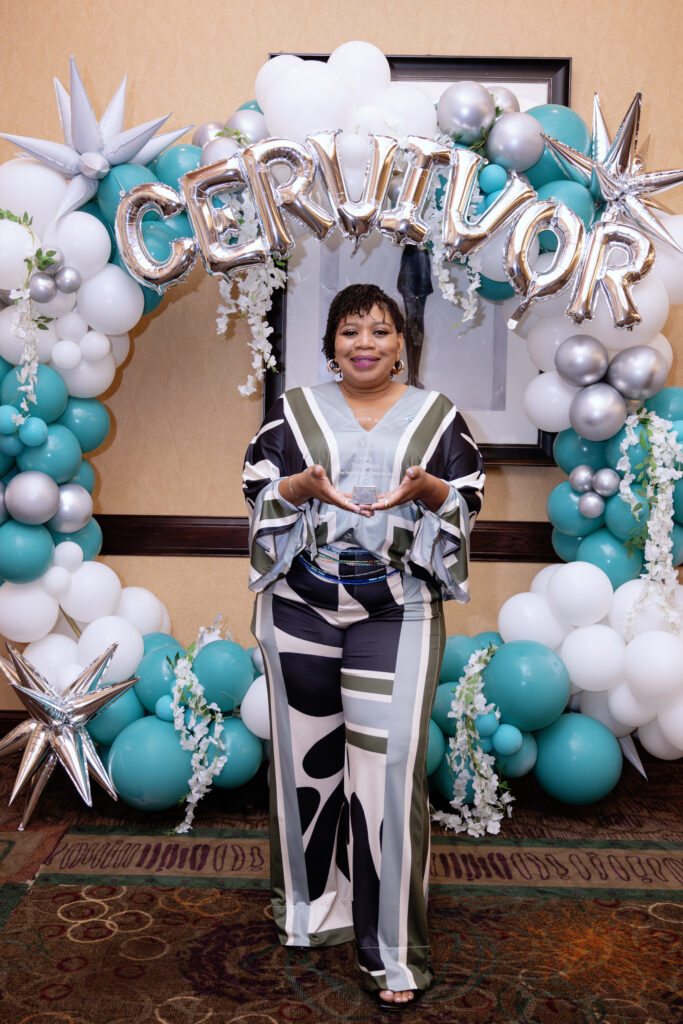
Cervivor Ambassador and Lead of Cervivor Noir Tiera Wade, who recently wrote a blog post celebrating Black physicians addressing cervical cancer disparities, says this reality shaped her own experience. Many Black women report that their pain and symptoms are minimized or dismissed.
“I was experiencing back pain, vaginal bleeding, and pain during intercourse, but I didn’t realize it was all preventable,” says the Akron, Ohio, resident, who was diagnosed during COVID after waiting months to be treated. “If I had been properly educated and prioritized as an African American woman — made aware of what HPV was — I would have been more proactive.”
During a recent panel Tiera moderated at the 2026 Cervical Cancer Summit Powered by Cervivor, Inc., Dr. Paris Thomas, PhD, MS, of Equal Hope in Chicago, shared how her grandmother often told the story of why her own mother never delivered her children in a hospital. After losing a baby there, she believed hospitals were unsafe and never returned. That pain carried across generations.
“Trust starts in our homes,” Dr. Thomas explained. And rebuilding it requires working within communities — asking what they need and creating care that feels familiar and respectful.

For Tiera, navigating treatment alone during the pandemic became an unexpected source of strength. “Because my treatment happened in the middle of COVID, I really had to use my voice,” she said. “I had to show up for myself. It gave me my power back.”
This February, Cervivor honors Black History Month by centering the voices of Black survivors — like Tiera and her fellow Black Cervivor community members featured below — while advancing its critical work to address persistent inequities and support individuals of color affected by cervical cancer.
From History to Right Now
Cervical cancer’s story cannot be told without Black women. In the 1950s, Henrietta Lacks, a young Black mother treated for cervical cancer, had her cells taken without her consent. Those cells became the first immortal human cell line and helped pave the way for countless scientific breakthroughs, including research that ultimately contributed to HPV vaccines.
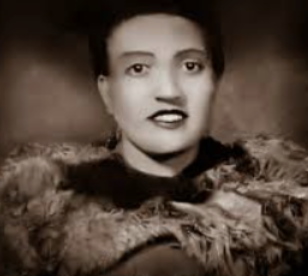
Enslaved Black women, often called the “Mothers of Gynecology,” were also subjected to experimentation without anesthesia or consent. That lingering mistrust still echoes today, shaping how safe it feels to seek care, ask questions, or advocate for oneself.
The disparities persist. Black women are more likely to die from cervical cancer than any other racial or ethnic group. They are more often diagnosed at a later stage, even though screening rates are often similar to or higher than those of white women. The issue is not simply whether a Pap or HPV test is done. It is what happens before and after: whether symptoms are taken seriously, abnormal results are followed up on, and treatment is accessible and affordable.
Barriers extend beyond the exam room — insurance gaps, transportation, childcare, time off work, and broader systemic inequities all affect access.
At the Summit, Dr. Thomas highlighted a stark example from Chicago. Brachytherapy centers — critical for cervical cancer treatment — are not located in the neighborhoods with the highest mortality rates. In Washington Park, a predominantly Black neighborhood with a lower median income, women are about 1.5 times more likely to die from cervical cancer than women in neighboring Hyde Park, just across the street and home to the University of Chicago.
“The difference isn’t distance,” Dr. Thomas said. “It’s economics. It’s access. It’s whether the system is designed with you in mind.”

We Are the Legacy: Black Cervivor Stories that Tell the Truth
Every statistic about cervical cancer has faces and families behind it. Here are just some stories from Black members of the Cervivor community:
Shondria’s Story

Shondria Vaughns’s cervical cancer diagnosis forced her to make an unimaginable choice: giving up her dream of having more children to save her life. In 2008, she underwent a radical hysterectomy after a 1-centimeter tumor was discovered. Later, she learned that several women in her family had faced gynecologic cancers, underscoring the importance of knowing your medical history. Today, she shares her story to stress that awareness and regular Pap tests can protect lives.
Tukesia’s Story
At 44, Tukesia’s life changed suddenly when a severe hemorrhage led to a Stage IV cervical cancer diagnosis. After coding in the hospital from blood loss, she endured weeks of radiation, chemotherapy, and brachytherapy while fighting to stay strong for her family. The journey tested her physically and emotionally, but it also strengthened her faith and resolve. Now a 2025 Cervivor School graduate, she advocates for vaccination and reminds women that they are never alone. Watch this recent video on CervivorTV about Tukesia’s cervical cancer journey.
Urika’s Story

Urika Fraser faced not only cervical cancer, but also insurance barriers that delayed her treatment. Her doctor ultimately admitted her to the hospital to begin chemotherapy, even arranging radiation at no cost. She spent more than six weeks hospitalized and later underwent lung surgery after the cancer spread. Through it all, Urika remained determined to fight for her life and her three children.
Felicia’s Story

Felicia Fe Fea endured years of severe bleeding and repeated dismissal of her concerns, despite a history of abnormal Pap tests. After months of hemorrhaging and a blood transfusion, she underwent a hysterectomy, only to learn she had stage 2B cervical cancer. Her cervix was overtaken by a tumor that had gone undiagnosed. Today, she speaks out about the importance of self-advocacy and making sure patients are truly heard.
Each of these stories reveals something the data alone cannot convey. They reveal the emotional labor of self-advocacy, the exhaustion of navigating systems not designed with Black women in mind, and the resilience of survivors pushing forward — not only for themselves, but for those who will come after them.
Finding Community through Cervivor
Healing from cervical cancer and navigating survivorship are deeply emotional and cultural experiences. For Black women, that means having spaces where they do not have to explain or downplay who they are to be heard.
That is why Cervivor Noir exists. Our community for Black women impacted by cervical cancer creates space to speak openly about racism and bias in healthcare, fears around family and fertility, and the role faith, culture, and community play in survivorship. There is a private Facebook group, and virtual Cervivor Noir meetups are every third Saturday of the month at 2 p.m. EST (register for the next one here).
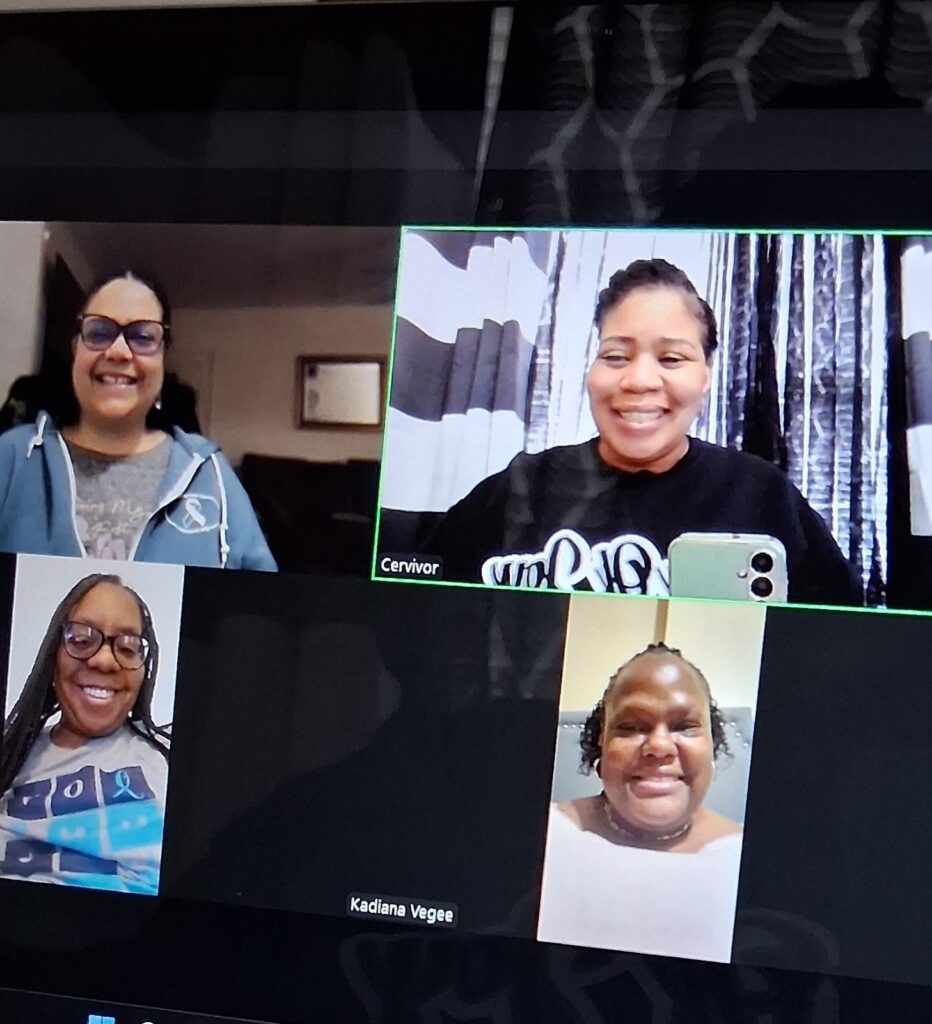
“It’s a place where someone can say, ‘This happened to me,’ and hear, ‘I believe you — I’ve been there,’” says Cervivor Founder and Chief Visionary Tamika Felder, who launched the organization 21 years ago after her own diagnosis. “When I went looking for support, I found no voices that looked or sounded like mine.”
Recently, Tamika reflected on this early journey in an interview with ESSENCE, sharing the very real barriers to care she faced as a freelance TV producer in Washington, D.C., without health insurance — circumstances that led her to put off regular screenings.
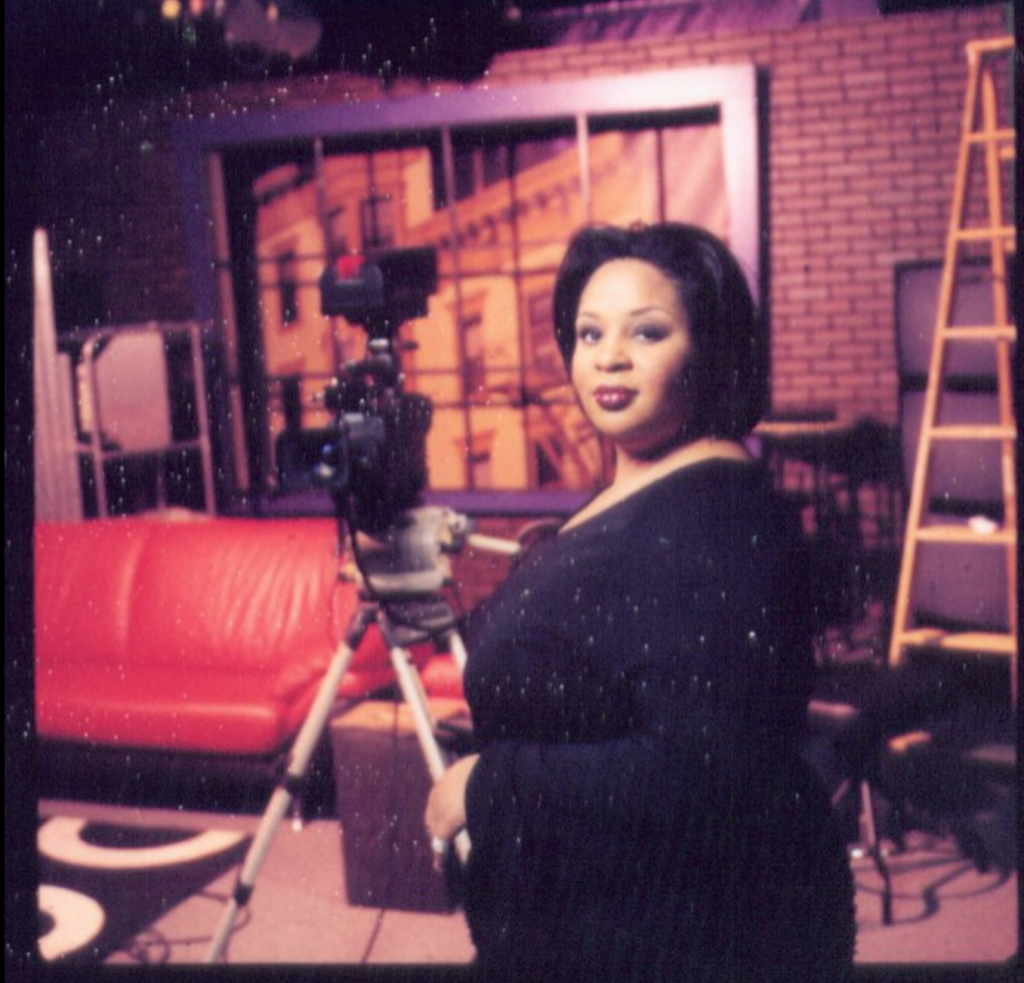
“I thought, ‘I don’t need it… if I get sick, I’ll just go to the emergency room,’” she told ESSENCE. As a result, she went several years without routine screenings and only discovered her cancer after a doctor treating her for a painful boil under her arm asked when she had last had a Pap test. By then, treatment was urgent. She needed a hysterectomy immediately, leaving no time — and no financial flexibility — to pursue fertility preservation.
For much of her adult life, Tamika believed that meant she would never have children. Since then, she has spoken openly about normalizing all fertility journeys — including what it’s like to be a Black mom to a non-Black toddler, her son, Chayton, the original “Cervivor Baby,” who was born through embryo donation and gestational surrogacy in November 2022.
Tamika’s lived experience — along with that of so many Black women and other women of color — is exactly why Cervivor’s events and programs are intentionally designed to center them, not merely include them. Through retreats, advocacy training, and community conversations, Cervivor is building spaces where Black survivors feel seen, supported, and empowered.
This Black History Month, we honor the Black women whose bodies and lives shaped modern gynecology and cancer research, often without consent or recognition. We also honor today’s Black Cervivors —Tiera, Shondria, Tukesia, Urika, and Felicia Fe Fea — who are turning their stories into blueprints for change and their communities into sources of strength.
When Black survivors’ voices are prioritized, we move closer to a future where cervical cancer is not another chapter in injustice, but a story of collective courage, community, and change.
About the Author
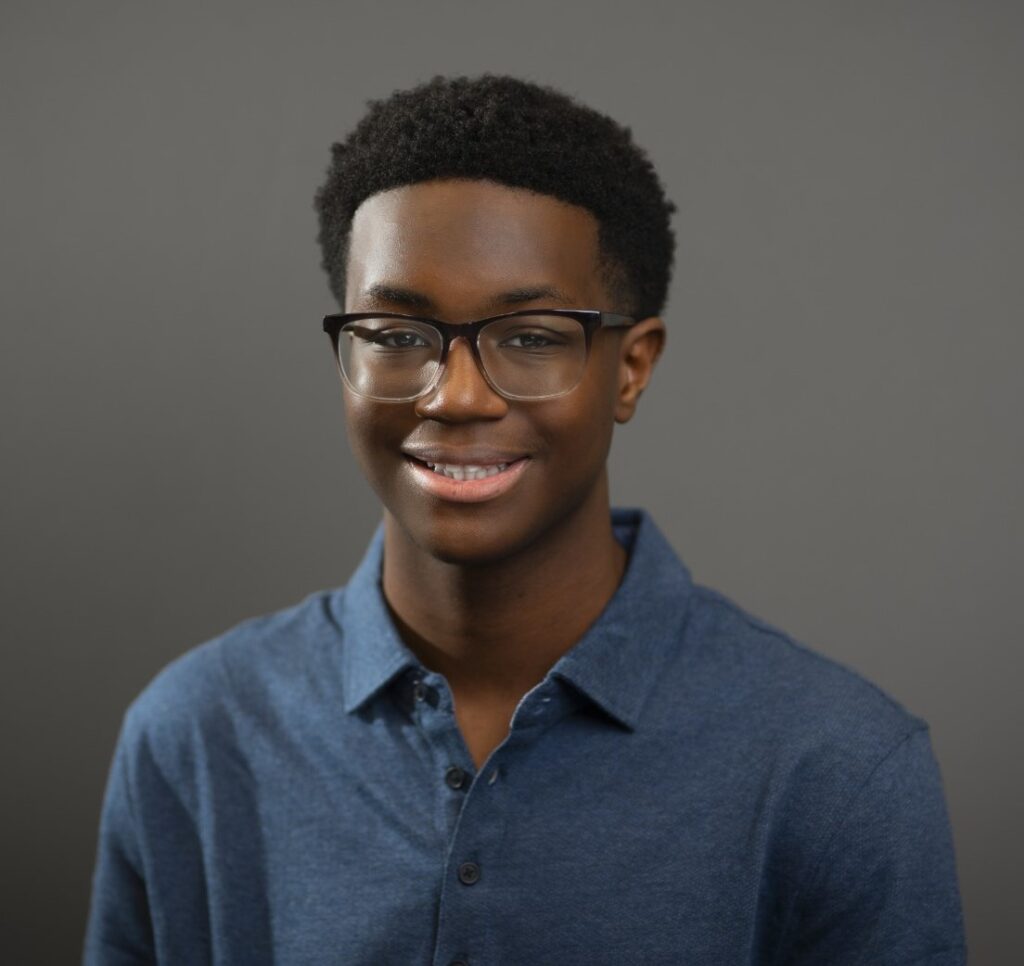
Kyle Minnis is a recent graduate of Strategic Communications at the University of Kansas with a passion for digital media, storytelling, and audience engagement. He has experience in content strategy and media production. Kyle is especially interested in the intersection of media, branding, and digital growth.
